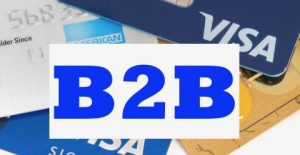Bobcat, Caterpillar, and other companies that offer rental equipment, all are impacted by new credit card processing rules for rentals. 
While businesses expect their software, including ERP, Point of Sale, and ecommerce shopping carts to help them manage compliance with credit card acceptance rules, the reality is that many don’t. Compliance increases profits; non-compliance increases new chargeback risks, interchange fees, penalty fees and authorization declines.
Traditional desktop terminals don’t support the new transaction data requirements. If merchant is not using EMV chip device, now is the time to upgrade to a cloud-based solution and fix two problems at once. Rental merchants cannot meet both card acceptance and Payment Card Industry Data Security Standards compliance requirements using traditional paper credit card authorization forms. Cloud technology and a compliant payment gateway are needed. For example, pair the Verifone MX 915 with the CenPOS validated Point to Point Encryption (P2PE) solution and use either a standalone or integrated to ERP such as Microsoft Dynamics AX.
Key elements for compliance:
- Initial authorization transaction must send new transaction indicator that it’s an estimate; the final amount could change for example because the renter kept it longer or damaged the equipment. This is technically managed by the payment gateway.
- If applicable, send incremental authorizations with related indicator.
- If storing the card, the Visa Stored Credential mandate outlines the specific requirements for agreement with customer, cardholder authentication, and procedures to use a stored card on file. For example, perform cardholder authentication with either security code or 3-D Secure. 3-D Secure can only be invoked if the customer self-pays; it shifts friendly fraud liability to the issuer and merchants can also qualify some cards for even lower interchange rates.
- Update language in agreements for opt-in to terms and conditions as required by Visa.
Card issuers and acquirers were mandated to be compliant in 2017, and merchants by October 2017, however, there’s no mandate for payment gateways. Even if an existing payment gateway supports the new requirements, merchants must make changes. Visa is the most complex, however other brands have similar rules.
From tokenization to Express Checkout, CenPOS creates a seamless commerce experience throughout the enterprise. Innovations, including Express Checkout via text or email, help businesses maximize profit in all departments. CenPOS takes the heavy lifting out of payment acceptance offering a range of solutions that simplify every aspect of implementing, operating and maintaining a payment system enabling merchants to focus on their business. CenPOS Express Checkout via text or email includes 3-D Secure capability as part of a layered security approach.
CenPOS is an integrated commerce technology platform driving innovative, omnichannel solutions tailored to meet a merchant’s market needs. Providing a single point of integration, the CenPOS platform combines payment, commerce and value-added functionality enabling merchants to transform their commerce experience, eliminate the need to manage complex integrations, reduce the burden of accepting payments and create deeper customer relationships. Powered by its enterprise-class, end-to-end transaction engine, CenPOS’ secure, cloud-based solutions seamlessly integrate with a merchants existing infrastructure minimizing disruption and saving time and money. Committed to a merchant-centric approach CenPOS provides a one-to-one level of service and support, enabling merchants to focus on their core business.
Headquartered in Miami, Florida, CenPOS is reshaping the future of commerce through technology innovation and the secure, flexible and simple solutions this enables. Christine Speedy, CenPOS Global Sales, 954-942-0483.
Reference:
https://usa.visa.com/dam/VCOM/global/support-legal/documents/stored-credential-transaction-framework-vbs-10-may-17.pdf
See also core rules, especially section 5 https://usa.visa.com/dam/VCOM/download/about-visa/visa-rules-public.pdf


